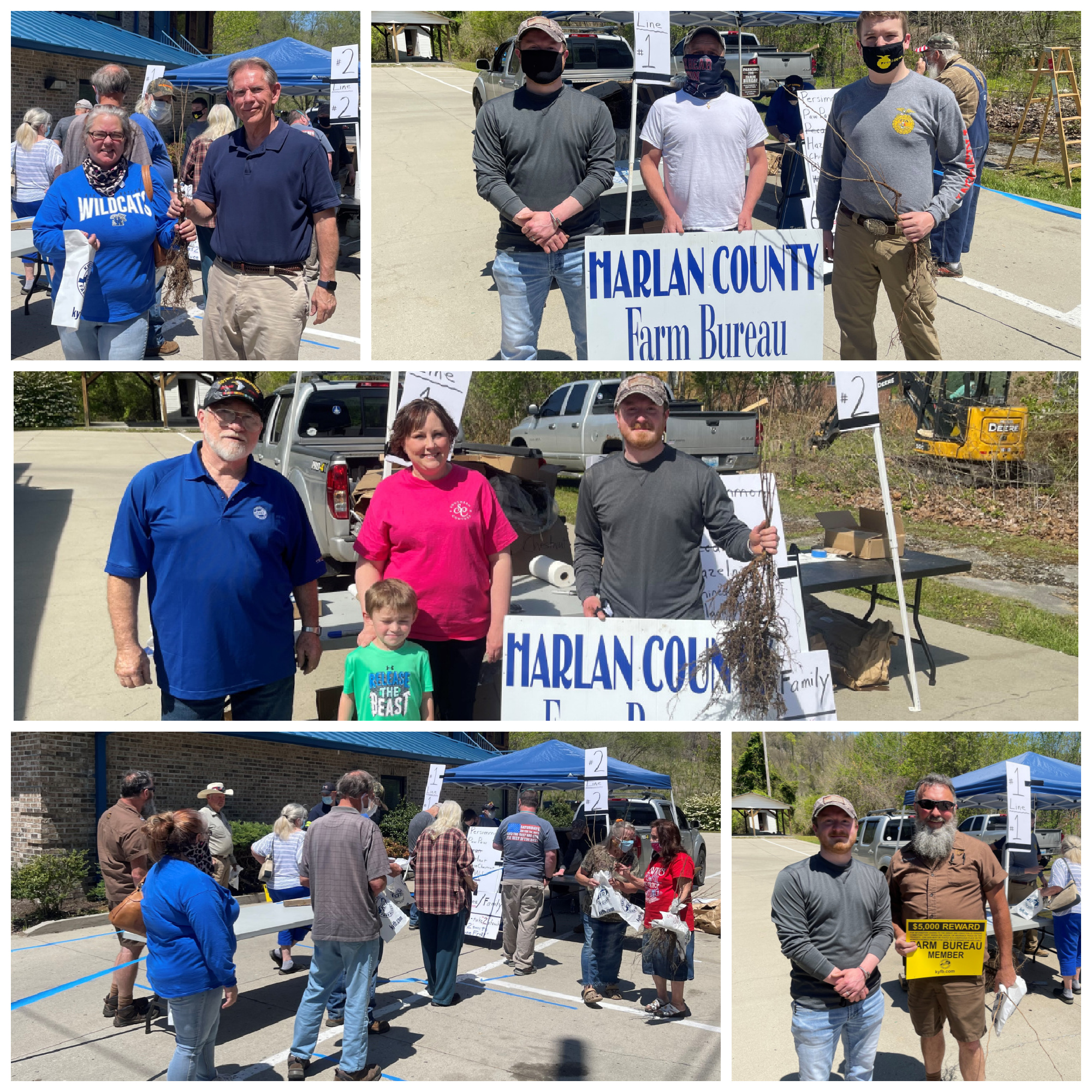Harlan County Farm Bureau Hosts Annual Tree Giveaway

Harlan County Farm Bureau’s Annual Tree Giveaway distributed 1,400 trees to its members and the public. On April 26, we set up from 1-6pm and April 27 from 9-noon. Hundreds of happy members received trees and instructions on planting. Everyone that attended received the Harlan County Farm Bureau Local Member Discount Brochure, the KFB State Discount and Benefits Brochure and the Yellow $5,000 Reward Sign.
Eight varieties of trees were available, including the White Oak which was chosen to support the White Oak Initiative. The White Oak Initiative works to ensure the long-term sustainability of America’s white oak and the economic, social and conservation benefits derived from white oak dominated forests. While currently white oak growing stocks are sufficient to meet demand, forest monitoring, and long-term projections indicate problems in maintaining high-quality white oak regeneration. White oak is critical to many wildlife species, and to industries making forest products such as furniture, flooring, cabinetry, barrels, as well as for recreational activities like hunting, generating billions of dollars to local economies throughout the white oak region.
KFB Spotlight
- Maple Syrup Puts Sweet Stamp on February
- February 9, 2026
-

-
Kentucky maple syrup enthusiasts joined Kentucky Agriculture Department officials at Blue Ends Farm in Shelbyville today to tap some maple trees and proclaim February as Maple Syrup Month in Kentucky.
- Down the Backroads | Special Edition
- February 6, 2026
-

-
When she picked him up, Goose grabbed the harness Lindie had brought, right out of her hand and away he went. She knew then he was meant to be her dog. Goose quickly became part of the family and another farmhand, proving his inherent ability to herd cattle early on.
- KFB Shines at American Farm Bureau Federation Convention
- February 6, 2026
-

-
More than 4,000 farmers and ranchers from across the country and Puerto Rico made their way to the 107th American Farm Bureau Federation Convention last month.